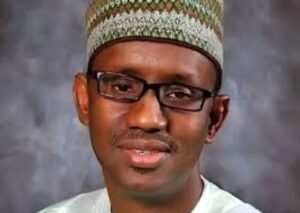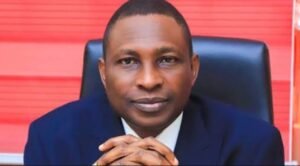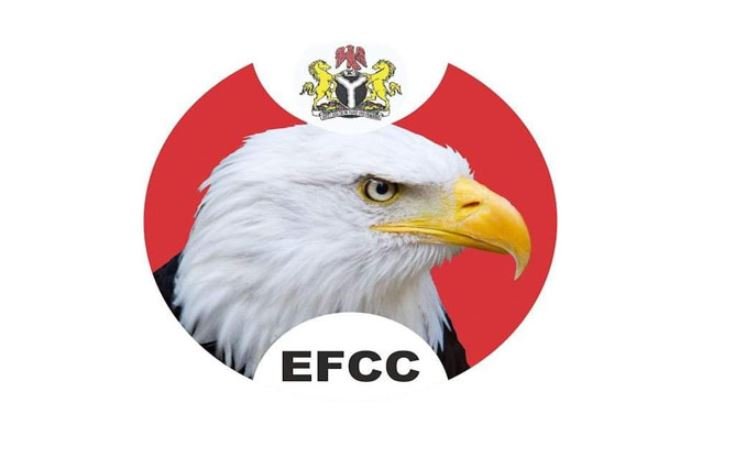The Economic and Financial Crimes Commission (EFCC), is a Nigerian agency created to fight economic and financial crimes. Established in 2003, its main function is to prevent and investigate crimes like fraud and money laundering.
The EFCC enforces laws that protect the economy and ensure that those who commit financial crimes are punished. It also educates the public about these issues to help reduce crime. The commission aims to create a Nigeria free from such crimes, promoting integrity and accountability in financial matters.
READ ALSO: Who Built ASO Rock (History Of ASO Rock)
List Of All EFCC Chairmen In Nigeria From 2003 Till Date
| Name | Tenure |
|---|---|
| Mallam Nuhu Ribadu | 2003-2007 |
| Mrs. Farida Waziri | 2008-2011 |
| Ibrahim Lamorde | 2012-2015 |
| Abdul Rasheed Bawa | 2021-2023 |
| Olanipekun Olukoyede | 2023 - Date |
READ ALSO: How To Address The President Of Nigeria In A Letter
Who Was The First Chairman Of EFCC In Nigeria?

The first Chairman of the Economic and Financial Crimes Commission (EFCC) in Nigeria was Nuhu Ribadu. Born on November 21, 1960, Nuhu Ribadu is a notable Nigerian politician and retired police officer.
He was appointed to lead the EFCC in 2003 by then-President Olusegun Obasanjo. This was after the EFCC was established to tackle financial crimes and corruption in Nigeria.
During his time as Chairman, Ribadu made a notable impact in the fight against corruption. Under his watch, the EFCC pursued numerous high-profile cases.
This included investigations and prosecutions involving former state governors and other top officials who were accused of corruption. Ribadu famously claimed that Nigerian governments had misappropriated over $380 billion since the country’s independence.
His efforts led to many arrests and convictions of corrupt individuals. One notable case was that of Tafa Balogun, a former Inspector General of Police, who was sentenced to jail and ordered to return £150 million.
However, Ribadu’s tenure also faced numerous threats and attempts on his life due to his strong anti-corruption stance. In 2008, he was removed from his position as EFCC Chairman amidst political controversies.
Many saw this as an attempt to undermine his fight against corruption. After his removal, Ribadu went into exile but returned to Nigeria in 2010. He then joined the politics, running for the presidency in 2011 and later seeking the governorship of Adamawa State.
In June 2023, Ribadu made a comeback to public service when he was appointed as the National Security Adviser by President Bola Tinubu.
READ ALSO: When Was EFCC Established And Who Established EFCC?
Who Is The Current Chairman Of EFCC In Nigeria?

Olanipekun Olukoyede, also known as Ola, is the current Executive Chairman of the Economic and Financial Crimes Commission (EFCC) in Nigeria. He took on this role on October 12, 2023, after being appointed by President Bola Ahmed Tinubu.
Born on October 14, 1969, in Ikere-Ekiti, Ekiti State, Olukoyede is not only a lawyer but also a pastor in the Redeemed Christian Church of God, where he serves at the City of Refuge in Lagos.
Olukoyede studied at Lagos State University and the University of Lagos. To further his education, he attended the Kennedy School of Executive Education at Harvard University.
Also, he had training from the Institute of Arbitration in Paris and Lagos, specializing in arbitration. Olukoyede served as the Chief of Staff to the Executive Chairman from 2016 to 2018 and then as the Secretary of the EFCC from 2018 to 2023. His experience spans over 22 years in regulatory compliance, fraud management, and corporate intelligence.
He is also a member of the Fraud Advisory Panel in the UK and has contributed to the Federal Government’s Technical Committee on the Repositioning of the Nigerian Financial Intelligence Unit. His appointment as EFCC Chairman came after the suspension of Abdulrasheed Bawa, the former Chairman.

